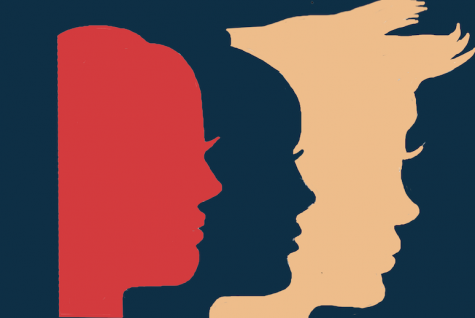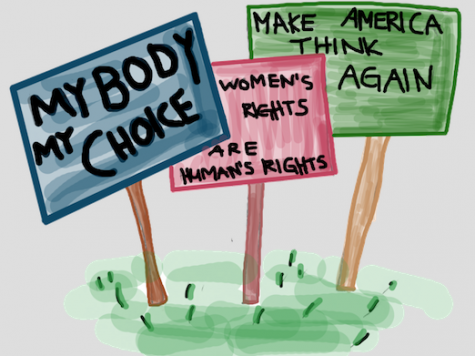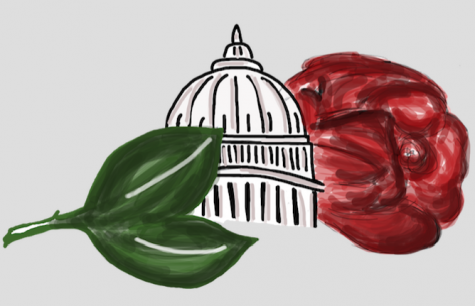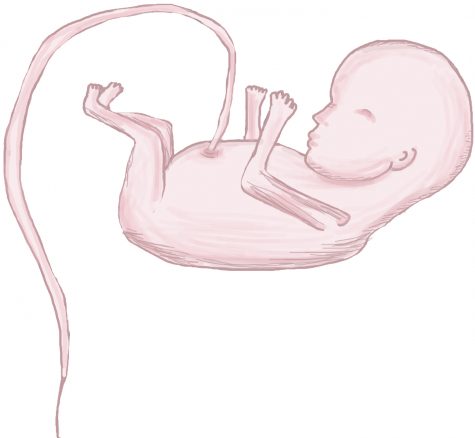Women march for rights
Thousands of people representing all ages, races, religions, sexualities and abilities gathered in Washington, D.C. during the month of January to share their voices and opinions on many issues, including the highly debated issue of pro-life vs. pro-choice. Though they seem different, the founding principals of the Women’s March on Washington and the March for Life resemble one another. The two groups were both founded to fight for the rights of those around them and those for generations to come.
The Women’s March on Washington
Helen Onken, senior, along with over 400,000 others, traveled to Washington, D.C., Jan. 21 to unite for the Women’s March on Washington. The Women’s March, occurring in cities all across the globe on the day after President Donald Trump’s inauguration, was established to advocate for the rights, safety and health of every person around the world. Issues addressed at the march included women’s rights, reproductive rights and rights for the LGBTQ community.
“[I marched for] equal rights and being able to have rights for women,” Onken said. “Being in D.C. was great. It was very reassuring that there were so many people out there that believe in standing up for the rights of women and preventing those rights from being taken away.”
The Women’s March took place on all seven continents, including Antarctica. The march in D.C. became the largest single-day demonstration in U.S. history, encouraging people from all backgrounds to unite under strong feminist values.
“For me, a feminist is somebody who thinks that everybody needs to be treated equally,” Onken said. “Many think that feminists are just women who hate men, but that’s not who we are. We just want to be treated equally and we want equal rights for everyone.”
Many who attended the march stood up for Planned Parenthood, a family-planning organization that has faced threats of defunding from the government for carrying out abortions. Two days after the march, Jan. 23, President Trump signed the Mexico City Policy back into law, limiting the funding for overseas organizations who carry out or encourage abortions as a method of family planning.
“Everybody is entitled to their own opinions, for their own voice to be heard,” Onken said. “I just want to know why people [who are pro-life] think they are entitled to somebody else’s body. It’s not really their problem if a woman gets an abortion or not.”
After the march itself, the Women’s March on Washington organization continued their fight. The organization announced their 10 Actions for the First 100 Days Campaign, in which supporters all across the globe planned meetings in their local communities to continue the conversation and devise the next steps they should take to respond to President Trump’s agenda.
“I don’t want to see abortion banned,” Onken said. “I do want to see more rights for the LGBT community, people of color and everyone who faces discrimination. At the end of the day, I just want everybody to have the rights they deserve.”
The March for Life
The March for Life, which occurred Jan. 27 in cities all across the world just a week after the Women’s March, began their organization in 1973 with the motive to create a world where every human life is valued and protected. Abby Vatterott, sophomore, traveled to Washington D.C. to march alongside the St. Clement Youth Group.
“When I arrived in D.C., I was immediately blown away by the amount of people who were there,” Vatterott said. “It was really amazing just to see that other people shared my views, and that I’m not alone in my opinions.”
Protesters at the march stood up for issues regarding abortion, sex-trafficking and overturning Roe v. Wade, which made abortion legal in all 50 states. Forty-four years after the Supreme Court invalidated current state laws regarding abortion, the March for Life organization continues to fight for new legislation that would make abortion illegal.
“After seeing all the social media posts from the Women’s March, I definitely respected their views,” Vatterott said. “Just looking at all the care that people have for these issues and watching them come out in such great numbers to come together is just inspiring. Even though I might not agree with everything they’re saying, I still thought it was amazing that people went and marched.”
The March on Life organization has made strides to educate Americans on abortion and other options for women such as adoption and pregnancy resource centers. The organization’s goal is to make non life-ending options for pregnant women more available to the community so abortions do not have to take place.
“Being pro-life, people immediately think you’re very anti-women, but as a girl, I can tell you right now that I’m not,” Vatterott said. “I respect a woman’s choice, and I understand the extreme cases of abortion.”
Throughout the year, the March for Life campaign carries out events every month to keep the message going. The organization’s 40 Days for Life event, which takes place across February and March, focuses on smaller communities coming together to end abortion through prayer, fasting, peaceful vigils and community outreach.
“I would like to see more laws respecting life and all it has to offer because I think everyone should have a chance at life,” Vatterott said. “Not just for abortion, even though abortion is a major issue we are standing up for, but also for euthanasia and respect for life, such as discrimination and sex trafficking. Everyone deserves a chance at a life.”
Your donation will support the student journalists of Kirkwood High School. Your contribution will allow us to purchase equipment and cover our annual website hosting costs.
Interests: Anything related to the water, earth or sun, plus concerts and music galore
Favorite food: Chocolate milkshakes (fav food AND drink)
Favorite...
Grade: 12
Interests: Tennis, dance, piano
Favorite quote: "Make the right decisions and life will lead you to the right places''
If you could be another...












